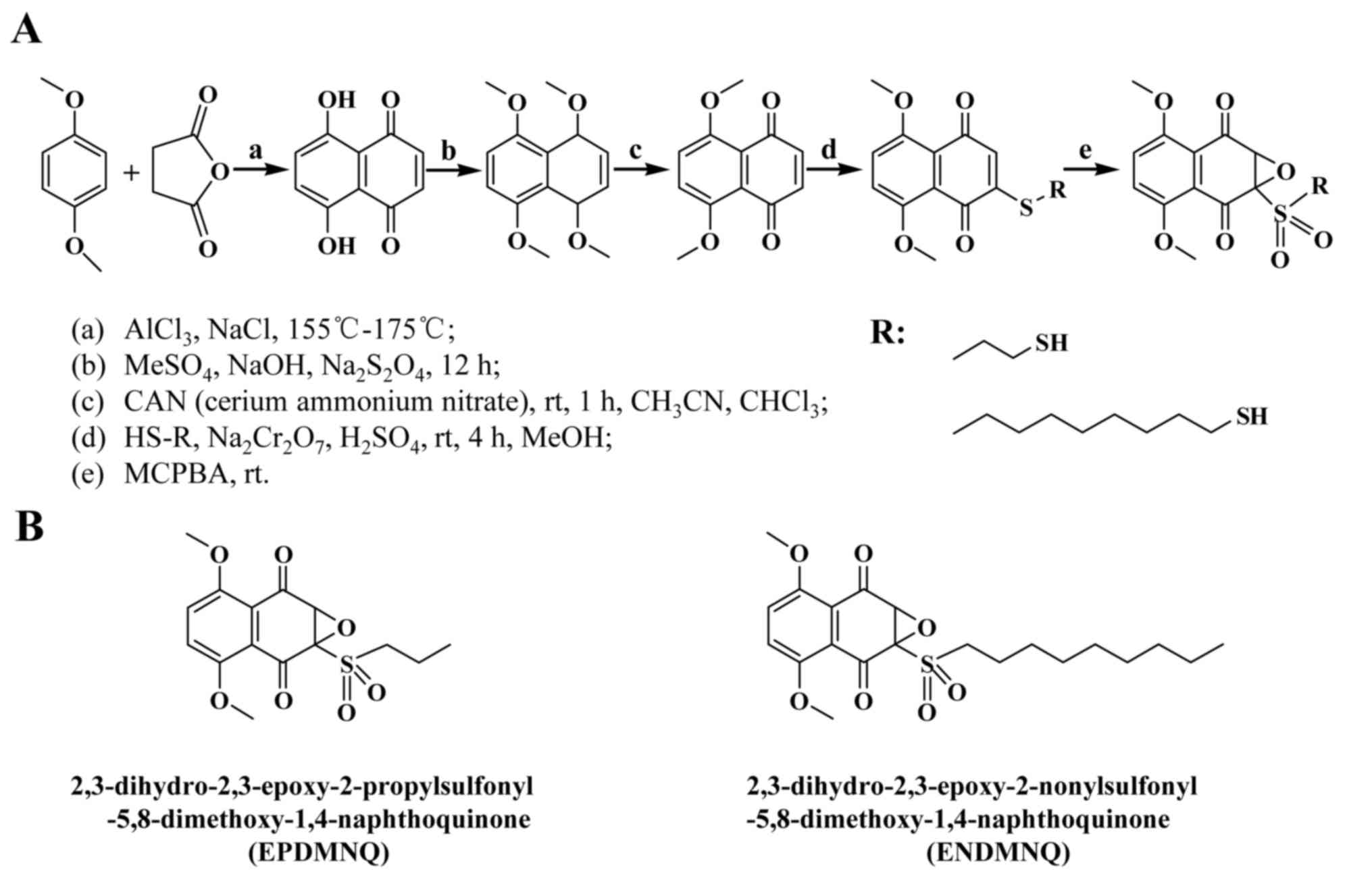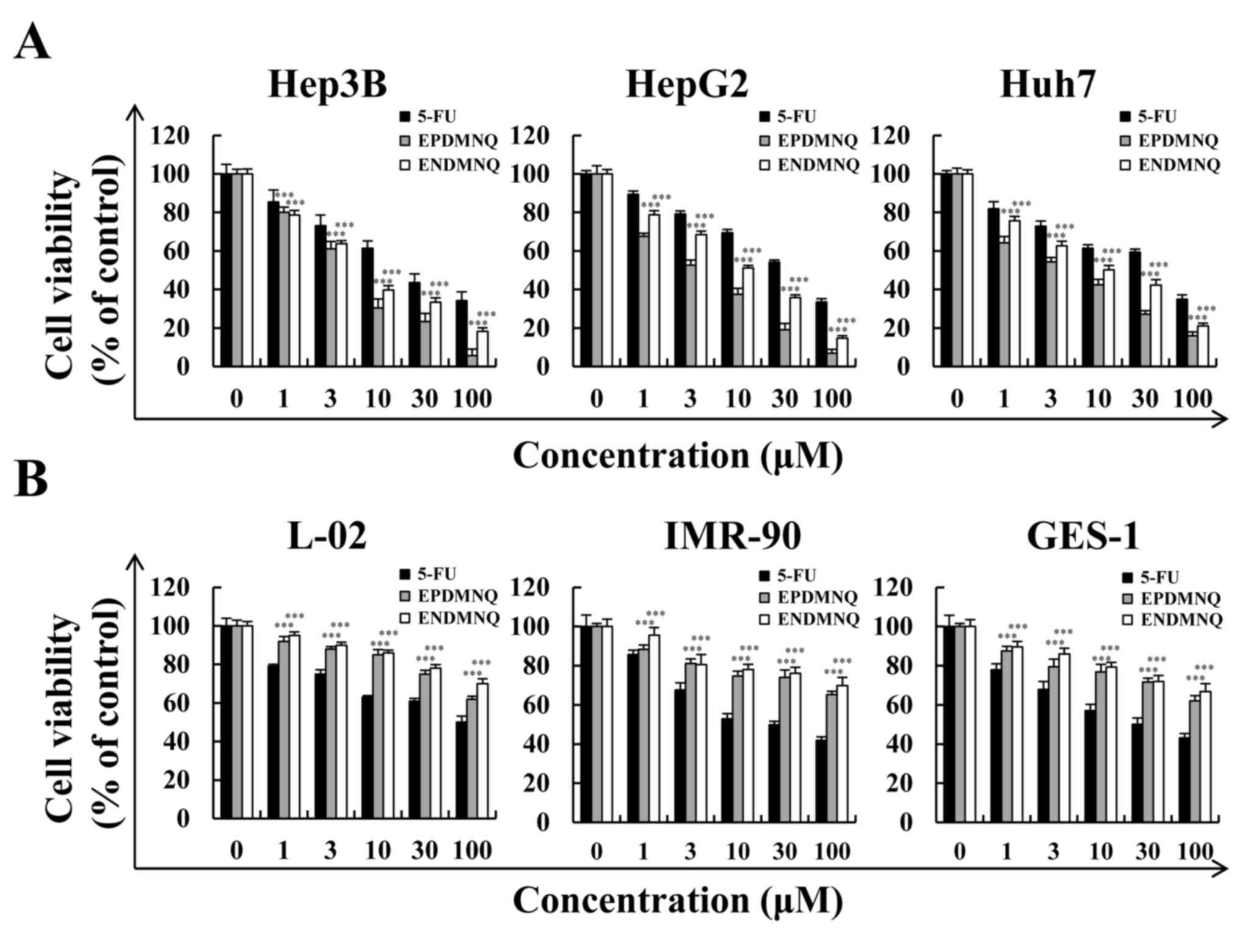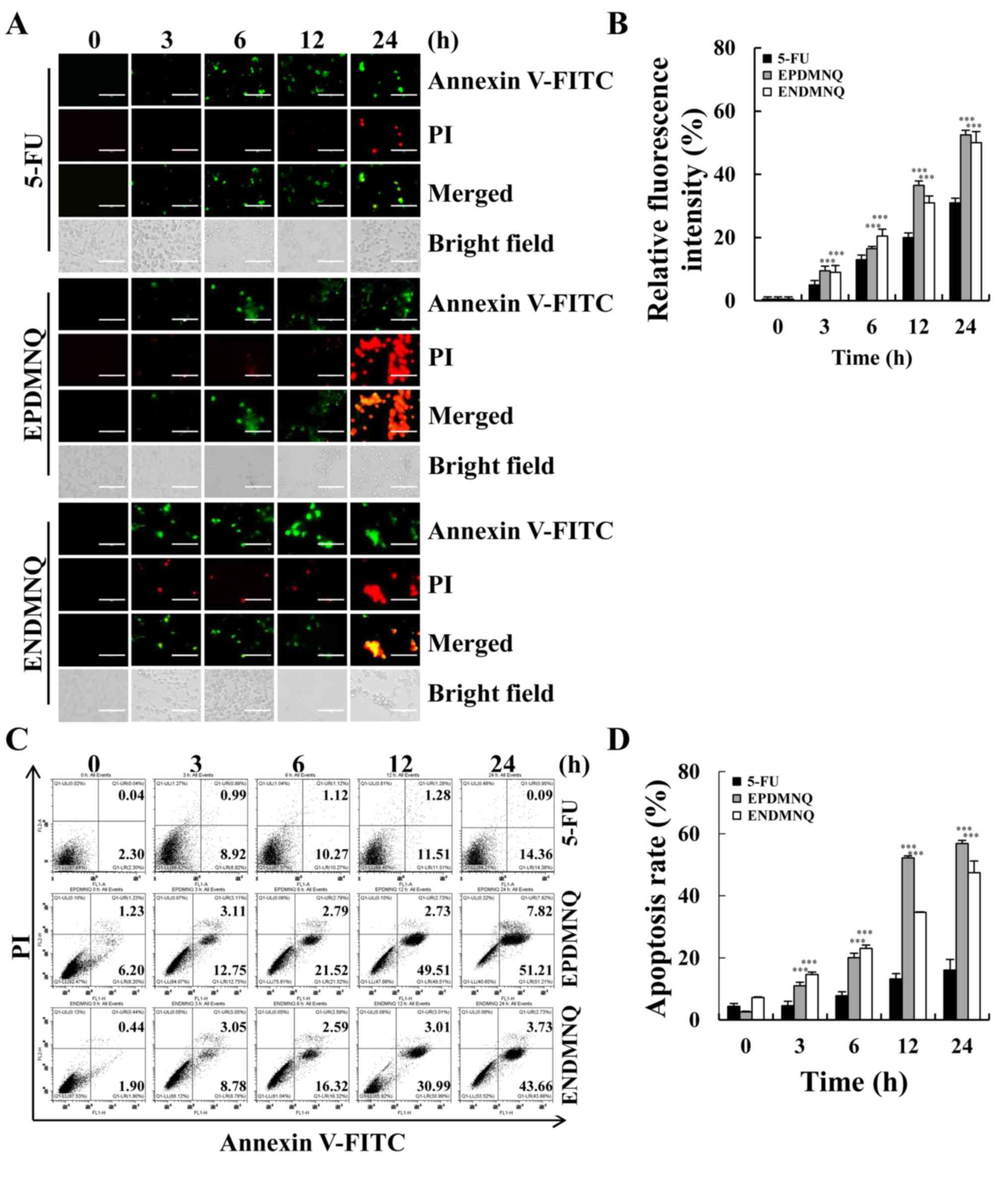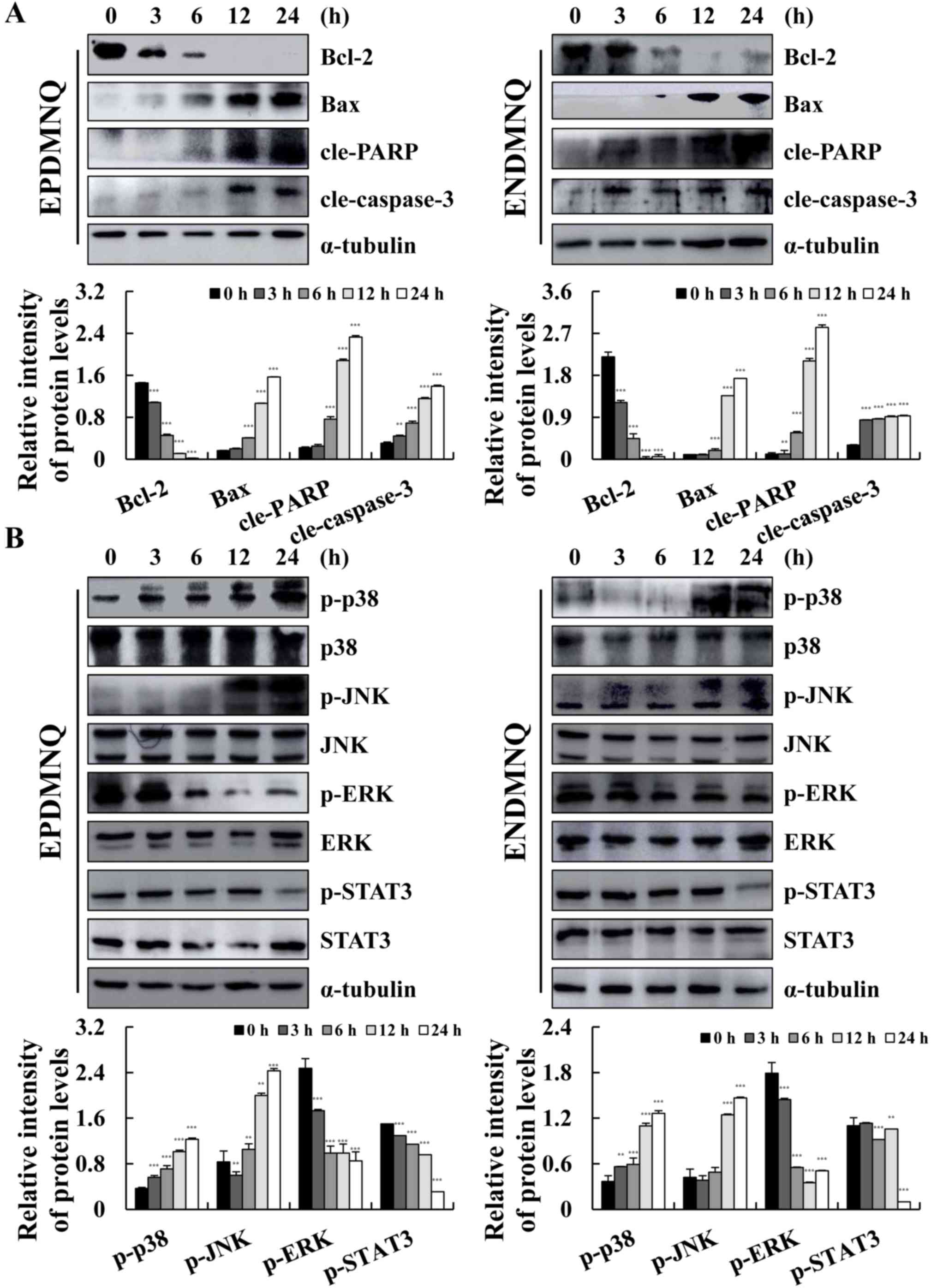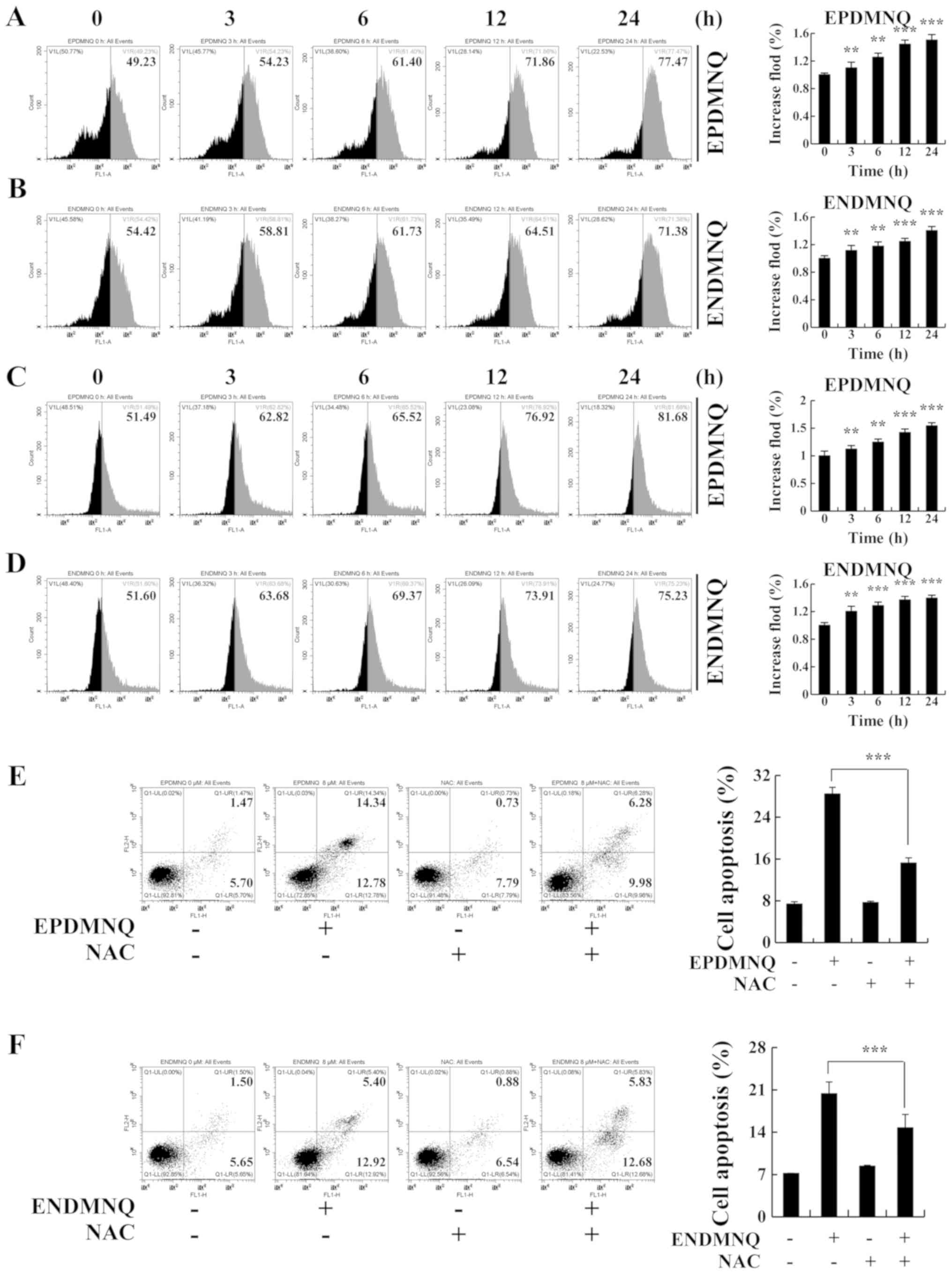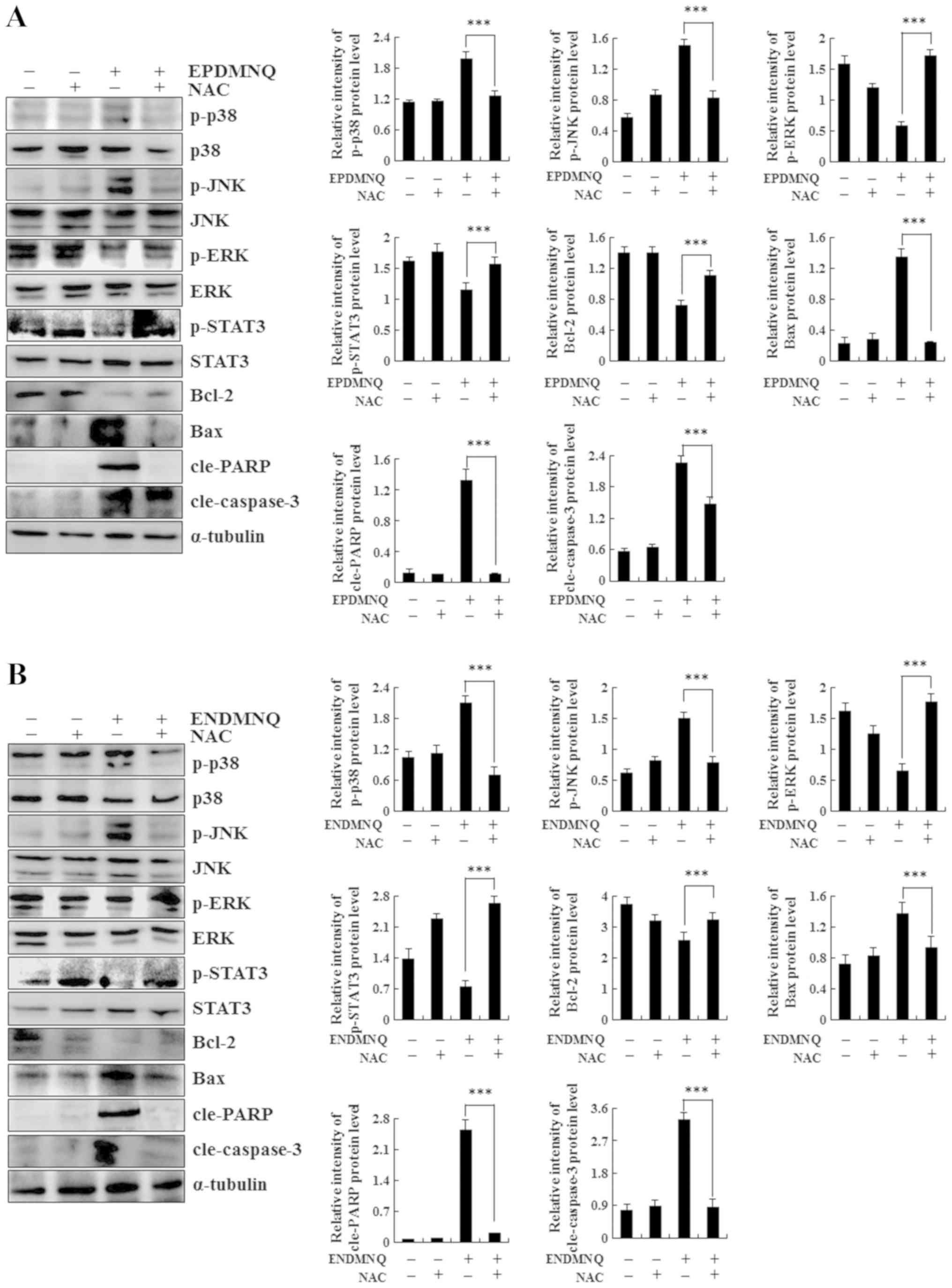|
1
|
Zhang ZQ, Meng H, Wang N, Liang LN, Liu
LN, Lu SM and Luan Y: Serum microRNA 143 and microRNA 215 as
potential biomarkers for the diagnosis of chronic hepatitis and
hepatocellular carcinoma. Diagn Pathol. 9:1352014. View Article : Google Scholar : PubMed/NCBI
|
|
2
|
Sellam F, Harir N, Khaled MB, Mrabent NM,
Salah R, Benchouk A and Diaf M: Delayed diagnosis of pancreatic
cancer reported as more common in a population of North African
young adults. J Gastrointest Oncol. 6:505–510. 2015.PubMed/NCBI
|
|
3
|
Bruix J, Reig M and Sherman M:
Evidence-based diagnosis, staging, and treatment of patients with
hepatocellular carcinoma. Gastroenterology. 150:835–853. 2016.
View Article : Google Scholar : PubMed/NCBI
|
|
4
|
Li Q, Zhu LZ, Yang RJ and Zhu X: Cytotoxic
activity of anticancer drugs on hepatocellular carcinoma cells in
hypoxic-hyponutritional culture. Int Surg. 99:745–752. 2014.
View Article : Google Scholar : PubMed/NCBI
|
|
5
|
Loureiro R, Magalhães-Novais S, Mesquita
KA, Baldeiras I, Sousa IS, Tavares LC, Barbosa IA, Oliveira PJ and
Vega-Naredo I: Melatonin antiproliferative effects require active
mitochondrial function in embryonal carcinoma cells. Oncotarget.
6:17081–17096. 2015. View Article : Google Scholar : PubMed/NCBI
|
|
6
|
Wang X, Yan Y, Yang L, Li M and Zhong X:
Effect of quercetin on the expression of Bcl-2/Bax apoptotic
proteins in endometrial cells of
lipopolysaccharide-induced-abortion mice. J Tradit Chin Med.
36:737–742. 2016. View Article : Google Scholar : PubMed/NCBI
|
|
7
|
Yang SY, Miah A, Sales KM, Fuller B,
Seifalian AM and Winslet M: Inhibition of the p38 MAPK pathway
sensitises human colon cancer cells to 5-fluorouracil treatment.
Int J Oncol. 38:1695–1702. 2011.PubMed/NCBI
|
|
8
|
Bao H, Guo CG, Qiu PC, Zhang XL, Dong Q
and Wang YK: Long non-coding RNA Igf2as controls hepatocellular
carcinoma progression through the ERK/MAPK signaling pathway. Oncol
Lett. 14:2831–2837. 2017. View Article : Google Scholar : PubMed/NCBI
|
|
9
|
Lu X, Li C, Wang YK, Jiang K and Gai XD:
Sorbitol induces apoptosis of human colorectal cancer cells via p38
MAPK signal transduction. Oncol Lett. 7:1992–1996. 2014. View Article : Google Scholar : PubMed/NCBI
|
|
10
|
Giachello CN, Fiumara F, Giacomini C,
Corradi A, Milanese C, Ghirardi M, Benfenati F and Montarolo PG:
MAPK/Erk-dependent phosphorylation of synapsin mediates formation
of functional synapses and short-term homosynaptic plasticity. J
Cell Sci. 123:881–893. 2010. View Article : Google Scholar : PubMed/NCBI
|
|
11
|
Pereira L, Igea A, Canovas B, Dolado I and
Nebreda AR: Inhibition of p38 MAPK sensitizes tumour cells to
cisplatin-induced apoptosis mediated by reactive oxygen species and
JNK. EMBO Mol Med. 5:1759–1774. 2013. View Article : Google Scholar : PubMed/NCBI
|
|
12
|
Qu J, Zhao M, Teng Y, Zhang Y, Hou K,
Jiang Y, Yang X, Shang H, Qu X and Liu Y: Interferon-α sensitizes
human gastric cancer cells to TRAIL-induced apoptosis via
activation of the c-CBL-dependent MAPK/ERK pathway. Cancer Biol
Ther. 12:494–502. 2011. View Article : Google Scholar : PubMed/NCBI
|
|
13
|
Atay O and Skotheim JM: Spatial and
temporal signal processing and decision making by MAPK pathways. J
Cell Biol. 216:317–330. 2017. View Article : Google Scholar : PubMed/NCBI
|
|
14
|
Gong J, Lv L and Huo J: Roles of F-box
proteins in human digestive system tumors (Review). Int J Oncol.
45:2199–2207. 2014. View Article : Google Scholar : PubMed/NCBI
|
|
15
|
Tasaki S, Horiguchi A, Asano T, Ito K,
Asano T and Asakura H: Docosahexaenoic acid inhibits the
phosphorylation of STAT3 and the growth and invasion of renal
cancer cells. Exp Ther Med. 14:1146–1152. 2017. View Article : Google Scholar : PubMed/NCBI
|
|
16
|
Yuan J, Zhang F and Niu R: Multiple
regulation pathways and pivotal biological functions of STAT3 in
cancer. Sci Rep. 5:176632015. View Article : Google Scholar : PubMed/NCBI
|
|
17
|
Bharadwaj U, Eckols TK, Kolosov M,
Kasembeli MM, Adam A, Torres D, Zhang X, Dobrolecki LE, Wei W,
Lewis MT, et al: Drug-repositioning screening identified
piperlongumine as a direct STAT3 inhibitor with potent activity
against breast cancer. Oncogene. 34:1341–1353. 2015. View Article : Google Scholar : PubMed/NCBI
|
|
18
|
Kron KJ, Murison A, Zhou S, Huang V,
Yamaguchi TN, Shiah YJ, Fraser M, van der Kwast T, Boutros PC,
Bristow RG, et al: TMPRSS2-ERG fusion co-opts master transcription
factors and activates NOTCH signaling in primary prostate cancer.
Nat Genet. 49:1336–1345. 2017. View Article : Google Scholar : PubMed/NCBI
|
|
19
|
Lai ZQ, Ip SP, Liao HJ, Lu Z, Xie JH, Su
ZR, Chen YL, Xian YF, Leung PS and Lin ZX: Brucein D, a naturally
occurring tetracyclic triterpene quassinoid, induces apoptosis in
pancreatic cancer through ROS-associated PI3K/Akt signaling
pathway. Front Pharmacol. 8:9362017. View Article : Google Scholar : PubMed/NCBI
|
|
20
|
Sengupta D, Mazumdar ZH, Mukherjee A,
Sharma D, Halder AK, Basu S and Jha T: Benzamide porphyrins with
directly conjugated and distal pyridyl or pyridinium groups
substituted to the porphyrin macrocycles: Study of the
photosensitising abilities as inducers of apoptosis in cancer cells
under photodynamic conditions. J Photochem Photobiol B.
178:228–236. 2017. View Article : Google Scholar : PubMed/NCBI
|
|
21
|
Sun J, Song B, Ye Z and Yuan J:
Mitochondria targetable time-gated luminescence probe for singlet
oxygen based on a β-diketonate-europium complex. Inorg Chem.
54:11660–11668. 2015. View Article : Google Scholar : PubMed/NCBI
|
|
22
|
Gonzalez AA, Zamora L, Reyes-Martinez C,
Salinas-Parra N, Roldan N, Cuevas CA, Figueroa S, Gonzalez-Vergara
A and Prieto MC: (Pro)renin receptor activation increases
profibrotic markers and fibroblast-like phenotype through
MAPK-dependent ROS formation in mouse renal collecting duct cells.
Clin Exp Pharmacol Physiol. 44:1134–1144. 2017. View Article : Google Scholar : PubMed/NCBI
|
|
23
|
Liu XM, Peyton KJ and Durante W: Ammonia
promotes endothelial cell survival via the heme
oxygenase-1-mediated release of carbon monoxide. Free Radic Biol
Med. 102:37–46. 2017. View Article : Google Scholar : PubMed/NCBI
|
|
24
|
Guerriero E, Sorice A, Capone F,
Napolitano V, Colonna G, Storti G, Castello G and Costantini S:
Vitamin C effect on mitoxantrone-induced cytotoxicity in human
breast cancer cell lines. PLoS One. 9:e1152872014. View Article : Google Scholar : PubMed/NCBI
|
|
25
|
Coelho-Cerqueira E1, Netz PA, do Canto VP,
Pinto AC and Follmer C: Beyond topoisomerase inhibition: Antitumor
1,4-naphthoquinones as potential inhibitors of human monoamine
oxidase. Chem Biol Drug Des. 83:401–410. 2014. View Article : Google Scholar : PubMed/NCBI
|
|
26
|
Graciani FS and Ximenes VF:
2-Bromo-1,4-naphthoquinone: A potentially improved substitute of
menadione in Apatone™ therapy. Braz J Med Biol Res. 45:701–710.
2012. View Article : Google Scholar : PubMed/NCBI
|
|
27
|
Ju Woo H, Jun DY, Lee JY, Park HS, Woo MH,
Park SJ, Kim SC, Yang CH and Kim YH: Anti-inflammatory action of
2-carbomethoxy-2,3-epoxy-3-prenyl-1,4-naphthoquinone (CMEP-NQ)
suppresses both the MyD88-dependent and TRIF-dependent pathways of
TLR4 signaling in LPS-stimulated RAW264.7 cells. J Ethnopharmacol.
205:103–115. 2017. View Article : Google Scholar : PubMed/NCBI
|
|
28
|
P R KR, Fernandez A, Laila SP, B A, C S S
and V S V: Synthesis, spectral characterization, crystal structure,
cytotoxicity and apoptosis-Inducing activity of two derivatives of
2-hydroxy-1,4-naphthaquinone. Photodiagnosis Photodyn Ther.
17:250–259. 2017. View Article : Google Scholar : PubMed/NCBI
|
|
29
|
Kawiak A and Lojkowska E: Ramentaceone, a
naphthoquinone derived from drosera sp., induces apoptosis by
suppressing PI3K/Akt signaling in breast cancer cells. PLoS One.
11:e01477182016. View Article : Google Scholar : PubMed/NCBI
|
|
30
|
Liu C, Shen GN, Luo YH, Piao XJ, Jiang XY,
Meng LQ, Wang Y, Zhang Y, Wang JR, Wang H, et al: Novel
1,4-naphthoquinone derivatives induce apoptosis via ROS-mediated
p38/MAPK, Akt and STAT3 signaling in human hepatoma Hep3B cells.
Int J Biochem Cell Biol. 96:9–19. 2018. View Article : Google Scholar : PubMed/NCBI
|
|
31
|
P1rachayasittikul V, Pivngaew R,
Worachartcheewan A, Nantasenamat C, Prachayasittikul S, Ruchirawat
S and Prachayasittikul V: Synthesis, anticancer activity and QSAR
study of 1,4-naphthoquinone derivatives. Eur J Med Chem.
84:247–263. 2014. View Article : Google Scholar : PubMed/NCBI
|
|
32
|
Lee JJ, Zhang WY, Yi H, Kim Y, Kim IS,
Shen GN, Song GY and Myung CS: Anti-proliferative actions of
2-decylamino-5,8-dimethoxy-1,4-naphthoquinone in vascular smooth
muscle cells. Biochem Biophys Res Commun. 411:213–218. 2011.
View Article : Google Scholar : PubMed/NCBI
|
|
33
|
Lara LS, Moreira CS, Calvet CM, Lechuga
GC, Souza RS, Bourguignon SC, Ferreira VF, Rocha D and Pereira MCS:
Efficacy of 2-hydroxy-3-phenylsulfanylmethyl-[1,4]-naphthoquinone
derivatives against different Trypanosoma cruzi discrete type
units: Identification of a promising hit compound. Eur J Med Chem.
144:572–581. 2017. View Article : Google Scholar : PubMed/NCBI
|
|
34
|
Kishore N, Binneman B, Mahapatra A, van de
Venter M, du Plessis-Stoman D, Boukes G, Houghton P, Marion Meyer
JJ and Lall N: Cytotoxicity of synthesized 1,4-naphthoquinone
analogues on selected human cancer cell lines. Bioorg Med Chem.
22:5013–5019. 2014. View Article : Google Scholar : PubMed/NCBI
|
|
35
|
Bahman AA, Abaza MSI, Khoushiash SI and
Al-Attiyah RJ: Sequence-dependent effect of sorafenib in
combination with natural phenolic compounds on hepatic cancer cells
and the possible mechanism of action. Int J Mol Med. 42:1695–1715.
2018.PubMed/NCBI
|
|
36
|
You ML, Chen YJ, Chong QY, Wu MM, Pandey
V, Chen RM, Liu L, Ma L, Wu ZS, Zhu T and Lobie PE: Trefoil factor
3 mediation of oncogenicity and chemoresistance in hepatocellular
carcinoma is AKT-BCL-2 dependent. Oncotarget. 8:39323–39344. 2017.
View Article : Google Scholar : PubMed/NCBI
|
|
37
|
Zhang Y, Li H, Chang H, Du L, Hai J, Geng
X and Yan X: MTP18 overexpression contributes to tumor growth and
metastasis and associates with poor survival in hepatocellular
carcinoma. Cell Death Dis. 9:9562018. View Article : Google Scholar : PubMed/NCBI
|
|
38
|
Guamán-Ortiz LM, Orellana MI and
Ratovitski EA: Natural compounds as modulators of non-apoptotic
cell death in cancer cells. Curr Genomics. 18:132–155. 2017.
View Article : Google Scholar : PubMed/NCBI
|
|
39
|
Aden DP, Fogel A, Plotkin S, Damjanov I
and Knowles BB: Controlled synthesis of HBsAg in a differentiated
human liver carcinoma-derived cell line. Nature. 282:615–616. 1979.
View Article : Google Scholar : PubMed/NCBI
|
|
40
|
Morris KM, Aden DP, Knowles BB and Colten
HR: Complement biosynthesis by the human hepatoma-derived cell line
HepG2. J Clin Invest. 70:906–913. 1982. View Article : Google Scholar : PubMed/NCBI
|
|
41
|
Nakabayashi H, Taketa K, Miyano K, Yamane
T and Sato J: Growth of human hepatoma cells lines with
differentiated functions in chemically defined medium. Cancer Res.
42:3858–3863. 1982.PubMed/NCBI
|
|
42
|
Mohammad RM, Muqbil I, Lowe L, Yedjou C,
Hsu HY, Lin LT, Siegelin MD, Fimognari C, Kumar NB, Dou QP, et al:
Broad targeting of resistance to apoptosis in cancer. Semin Cancer
Biol. 35 Suppl:S78–S103. 2015. View Article : Google Scholar : PubMed/NCBI
|
|
43
|
Panganiban RA, Snow AL and Day RM:
Mechanisms of radiation toxicity in transformed and non-transformed
cells. Int J Mol Sci. 14:15931–15958. 2013. View Article : Google Scholar : PubMed/NCBI
|
|
44
|
Kodama T, Hikita H, Kawaguchi T, Saito Y,
Tanaka S, Shigekawa M, Shimizu S, Li W, Miyagi T, Kanto T, et al:
The Bcl-2 homology domain 3 (BH3)-only proteins Bim and bid are
functionally active and restrained by anti-apoptotic Bcl-2 family
proteins in healthy liver. J Biol Chem. 288:30009–30018. 2013.
View Article : Google Scholar : PubMed/NCBI
|
|
45
|
Bubici C and Papa S: JNK signalling in
cancer: In need of new, smarter therapeutic targets. Br J
Pharmacol. 171:24–37. 2014. View Article : Google Scholar : PubMed/NCBI
|
|
46
|
Calvo N, Carriere P, Martin MJ and Gentili
C: RSK activation via ERK modulates human colon cancer cells
response to PTHrP. J Mol Endocrinol. 59:13–27. 2017. View Article : Google Scholar : PubMed/NCBI
|
|
47
|
Kosako H and Kou M: Global Identification
of ERK substrates by phosphoproteomics based on IMAC and 2D-DIGE.
Methods Mol Biol 1487. 137–149. 2017. View Article : Google Scholar
|
|
48
|
Yao X, Liu H, Zhang X, Zhang L, Li X, Wang
C and Sun S: Cell surface GRP78 accelerated breast cancer cell
proliferation and migration by activating STAT3. PLoS One.
10:e01256342015. View Article : Google Scholar : PubMed/NCBI
|
|
49
|
Ishaq M, Kumar S, Varinli H, Han ZJ, Rider
AE, Evans MD, Murphy AB and Ostrikov K: Atmospheric gas
plasma-induced ROS production activates TNF-ASK1 pathway for the
induction of melanoma cancer cell apoptosis. Mol Bio Cell.
25:1523–1531. 2014. View Article : Google Scholar
|
|
50
|
Hempel N and Trebak M: Crosstalk between
Calcium and reactive oxygen species signaling in cancer. Cell
Calcium. 63:70–96. 2017. View Article : Google Scholar : PubMed/NCBI
|
|
51
|
Hseu YC, Tsai TJ, Korivi M, Liu JY, Chen
HJ, Lin CM, Shen YC and Yang HL: Antitumor properties of Coenzyme
Q0 against human ovarian carcinoma cells via induction
of ROS-mediated apoptosis and cytoprotective autophagy. Sci Rep.
7:80622017. View Article : Google Scholar : PubMed/NCBI
|
|
52
|
Kim MO, Moon DO, Jung JM, Lee WS, Choi YH
and Kim GY: Agaricus blazei extract induces apoptosis through
ROS-dependent JNK activation involving the mitochondrial pathway
and suppression of constitutive NF-κB in THP-1 cells. Evid Based
Complement Alternat Med 2011. 8381722011.
|
|
53
|
Sakon S, Xue X, Takekawa M, Sasazuki T,
Okazaki T, Kojima Y, Piao JH, Yagita H, Okumura K, Doi T, et al:
NF-kappaB inhibits TNF-induced accumulation of ROS that mediate
prolonged MAPK activation and necrotic cell death. EMBO J.
22:3898–3909. 2003. View Article : Google Scholar : PubMed/NCBI
|















